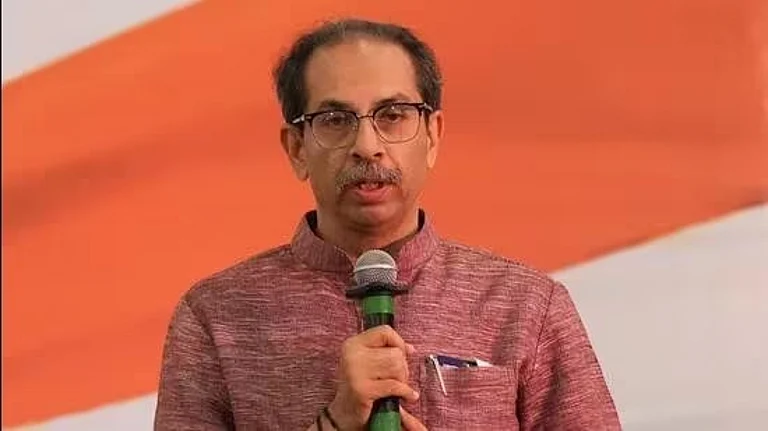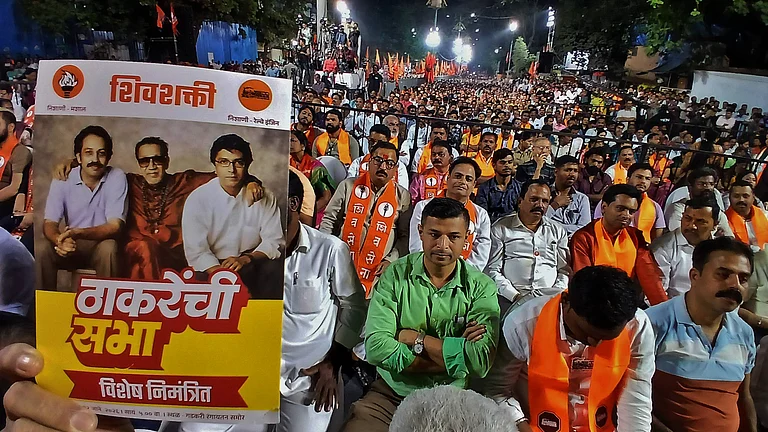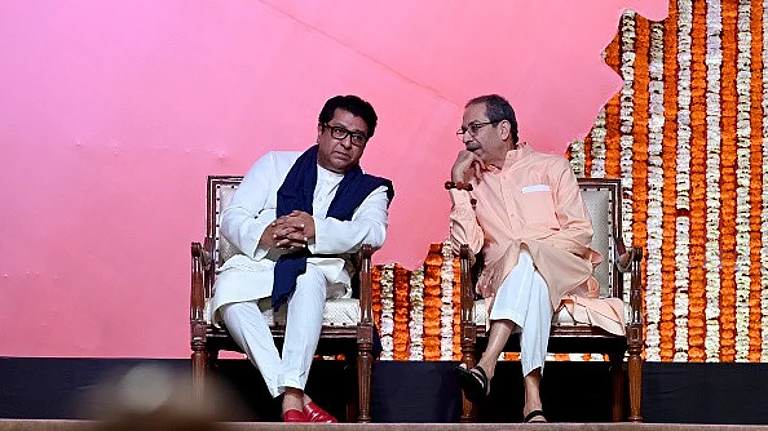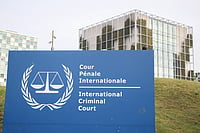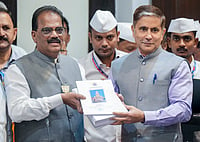In a rare moment of political spectacle, the NSCI Dome in Mumbai became the stage for a significant reunion; that of cousins Uddhav and Raj Thackeray. The estranged leaders, both scions of the powerful Thackeray family, came together to celebrate the Maharashtra government's decision to roll back the controversial three-language policy in primary schools: a move seen as a pushback against the perceived imposition of Hindi in the state.
Uddhav, the son of Shiv Sena founder Bal Thackeray, and Raj, son of Shrikant Thackeray, last shared a stage in 2005 during a campaign for the Malvan Assembly seat. Twenty years later, they stood united, not for an election, not for political power, but for a cause rooted deeply in Maharashtra’s linguistic identity.
The Thackerays are no ordinary family in Maharashtra’s political landscape. Their legacy traces back to Keshav Thackeray, better known as Prabhodhankar Thackeray, a prominent figure in the Samyukta Maharashtra Movement that led to the creation of the state on linguistic lines. But as much as the legacy binds them, the present divides them.
A Temporary Truce?
While the optics of unity were strong, it’s unlikely that this is a long-term political partnership. Uddhav now leads the Shiv Sena (UBT) faction and is a key part of the Maha Vikas Aghadi (MVA) alliance alongside the Congress and the NCP (SP). Raj heads the Maharashtra Navnirman Sena (MNS), a regional party sharply focused on the rights and identity of the Marathi manus. Their politics lie at opposite ends: Uddhav leans toward a more secular, coalition-based approach, while Raj is known for his hardline, pro-Marathi stance.
As Preeti Sharma Menon, Mumbai president of the Aam Aadmi Party (AAP), puts it: “They are coming together for an issue, but politically, it is very difficult for them to align. Raj is unpredictable and has changed sides frequently.”
Indeed, Raj campaigned for the Bharatiya Janata Party (BJP) during the 2024 Lok Sabha elections and has often expressed admiration for Prime Minister Narendra Modi.
“Raj has not been a steady political voice,” Menon adds. “But if this alliance lasts, it could become a force to reckon with.”
MVA Cracks Fuel Reunion?
The backdrop to this reunion is important. After the MVA’s disappointing performance in the 2024 State Assembly Elections, cracks have begun to emerge. Shiv Sena (UBT)’s mouthpiece Saamana had hinted at the party contesting the upcoming Mumbai civic polls independently. Soon after, Congress leader Vijay Wadettiwar criticized the alliance for wasting 20 days on unproductive seat-sharing talks; a delay he believes cost them dearly at the polls.
Former MLA Krishna Hegde, now with the Shiv Sena (Eknath Shinde faction), notes a key detail: “No major MVA leader attended the Thackeray brothers' event. The invite came directly from Uddhav to Raj. This signals that the event was outside the MVA fold and could even hurt the alliance’s standing among North Indian voters.”
MNS: Symbolic Weight, Electoral Struggles
Though MNS has wielded considerable influence in public discourse, it has struggled electorally. In the 2009 Assembly Elections, it won 13 seats, its best performance. Since then, the party has managed just one seat each in the 2014 and 2019 elections. In 2024, Raj’s son Amit Thackeray made his political debut from the Mahim constituency, once an MNS stronghold, but lost by a large margin.
Yet, Raj continues to grab headlines and shape narratives. The recent uproar over the language issue in Mumbai and elsewhere in the state has reignited debates on cultural and linguistic identity, fertile ground for MNS’s rhetoric.
At the NSCI event, Raj addressed the controversy surrounding his party workers’ aggressive push for Marathi usage in public spaces.
“Don’t assault anyone for not speaking Marathi,” he cautioned MNS members. “But if someone indulges in unnecessary drama, then hit them below the eardrum.” His comments drew criticism and support in equal measure, a reminder of his polarizing presence in Maharashtra politics.
Symbolism Vs Substance
The coming together of Uddhav and Raj over a linguistic issue signals a shift in focus, from conventional party lines to cultural advocacy. It may also serve as a tactical move ahead of the crucial Mumbai civic polls later this year.
Whether this reunion blossoms into a political alliance remains uncertain. The ideological chasm between the two leaders runs deep. But in the volatile landscape of Maharashtra politics, even symbolic gestures can carry outsized weight.
Only time will tell if this rare reunion was a one-off performance or the beginning of a new act in the Thackeray political saga.








